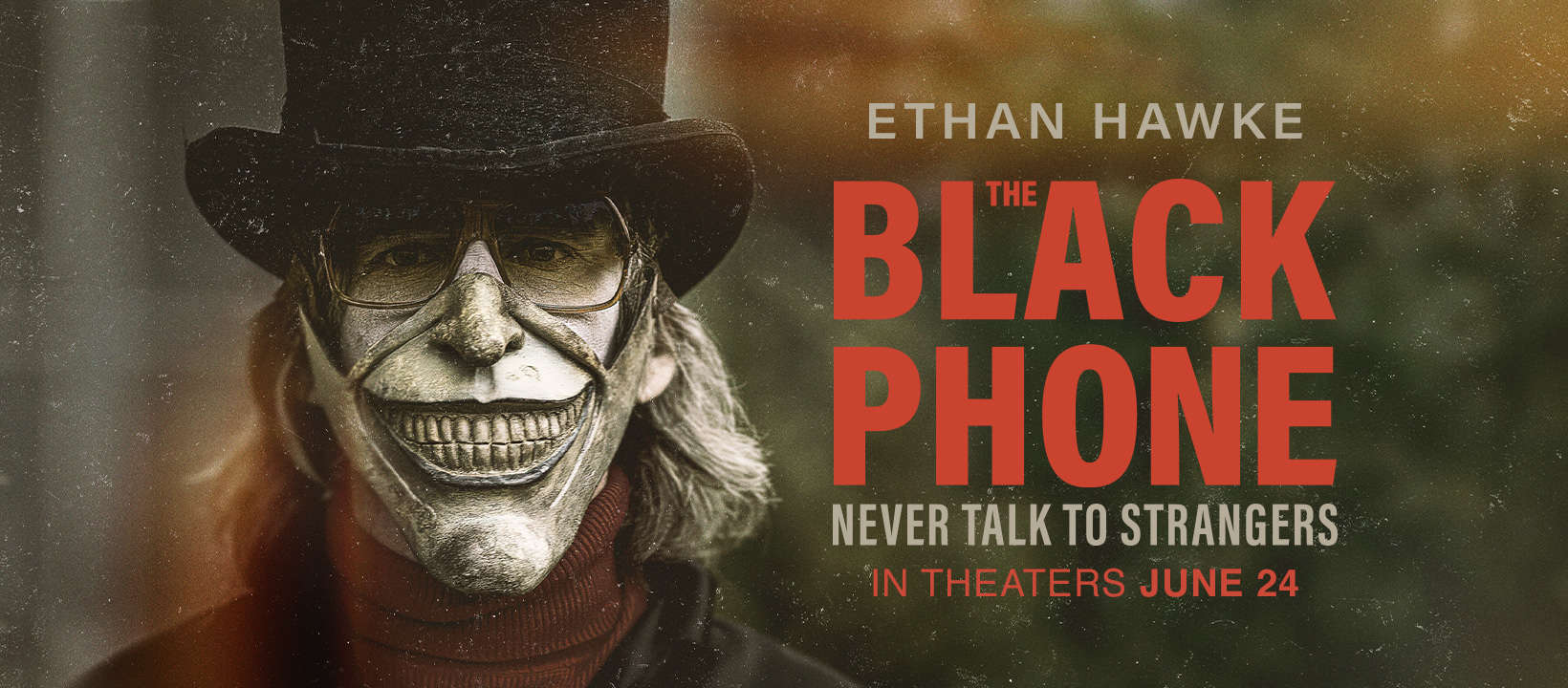REVIEW: The Black Phone – Poor Reception
Sinister is one of my favorite horror movies. It combines true crime and supernatural genres, uses home videos well, and builds up to a shocking ending. Needless to state, I was thrilled to see The Black Phone. It marks Derrickson’s return to the director’s chair for the first time since 2016’s Doctor Strange. The Black Phone fails to exploit the potential of this film fully and fails to make a film that gets under the skin.
It’s 1978. Denver is plagued with a series of child kidnappings by a man they call The Grabber (Ethan Hawke), but it’s still business. It could be the 1970s. There is a lot of violence and brutality in schools, so it shouldn’t be surprising that there is no parental concern. Terrence (Jeremy Davies) is a non-contender to father of the Year. He’s allowed his drinking to overwhelm him so much that his children Finney and Gwen (Madeleine McGraw) have had to walk around him in fear of triggering his rage.
Finney spends a lot of time in the film setting up his home and school and showing some of his relationships. The film does an excellent job of showing the bond between Finney (Gwen) and Robin (Miguel Cazarez Mora), and there is enough camaraderie to help ground some events later.
Finney is grabbed midway through the movie and wakes up in the basement where The Grabber stored all his victims. Hawke’s role as a kidnapper/killer is not a common one. Hawke has played villainous characters in the past, but that’s not to say he isn’t capable of doing so again. This Year, he gave a terrifying performance as Harrow. Harrow isn’t as evil as The Grabber, despite his misguided actions.
This man kidnaps, tortures, and kills young boys. Hawke wears the devilish mask of Finney to project his message, but he doesn’t rise to the level of evil necessary to make us fear for Finney. Hawke doesn’t have much screen time in the movie, so it isn’t easy to make an impact. Hawke’s character occasionally appears to make snarling, gleeful threats and then disappears up the stairs.
The basement has a black phone with a problem that won’t work anymore. Finney can contact The Grabber’s victims through the phone and help him learn from their mistakes. Although there is some good jump scares and set emotionally impactful pieces, the basement lacks tension. Finney doesn’t play this “naughty boy” game that the Grabber seems to be intent on playing. Finney is never caught trying to escape, and we don’t have to worry about him as much because of his past victims.
Gwen’s search to find him is a different story. Gwen has dreams that can reveal certain truths and realities to her. She also has magical powers. Gwen isn’t yet able to understand how her gifts work, which causes her to get frustrated and give up as she tries to find a way to save her brother. These dream walking sequences can be impressive, with McGraw’s performance being the best.
This is Stephen King territory. The use of horror is intended to represent the real-life horrors these children experience symbolically. This is fitting, as it was adapted from Joe Hill’s short story, King’s son. Hill’s horror roots are evident in the story. It gets complicated when Finney’s relationship with The Grabber isn’t explored. Also, not much information about The Grabber means that his victory over him isn’t as satisfying. This is in contrast to IT, which takes time to explore Pennywise’s interactions with The Grabber fully.
There was so much potential in this, but The Black Phone fails to rise to the occasion and is genuinely sinister.







